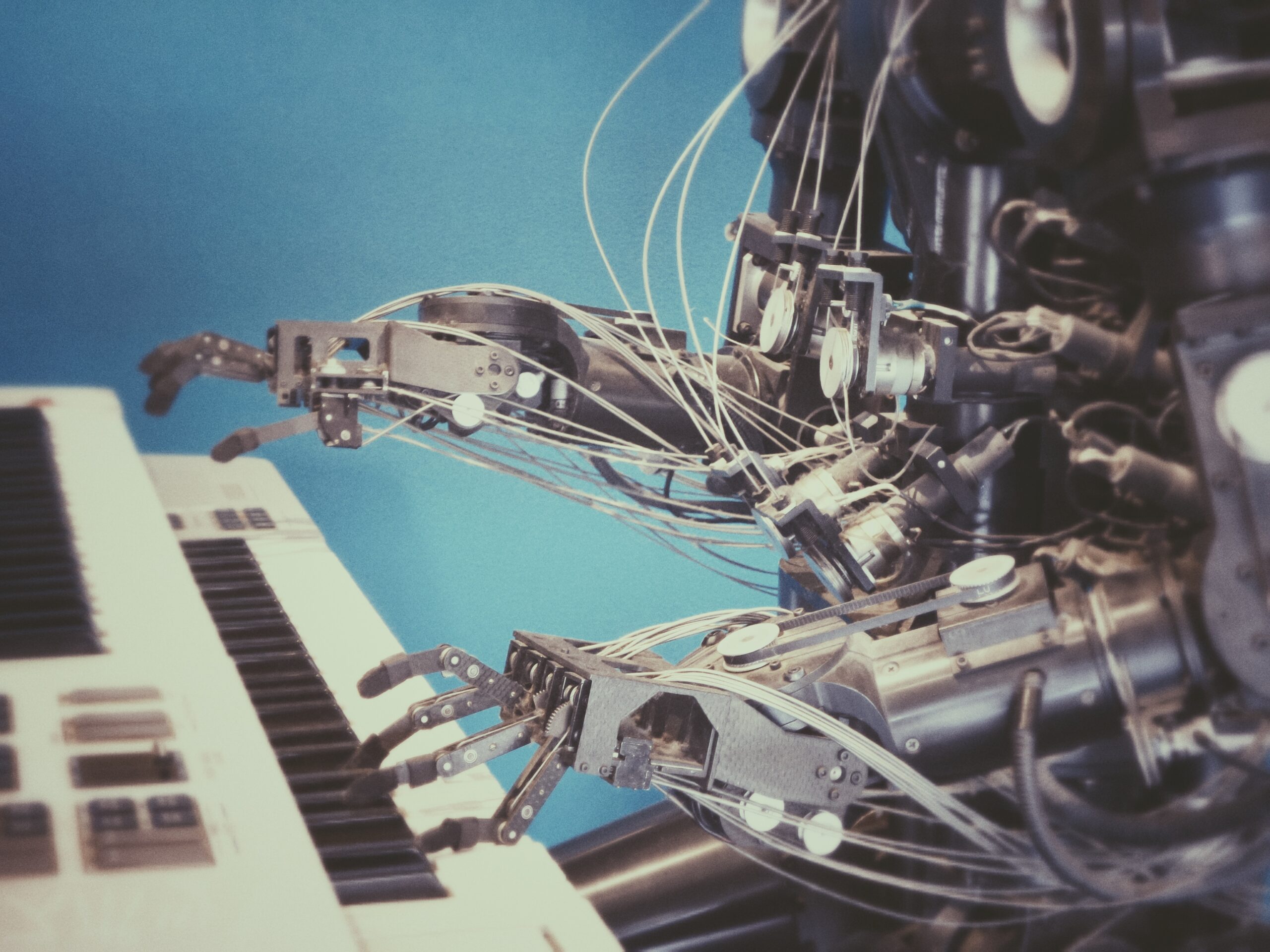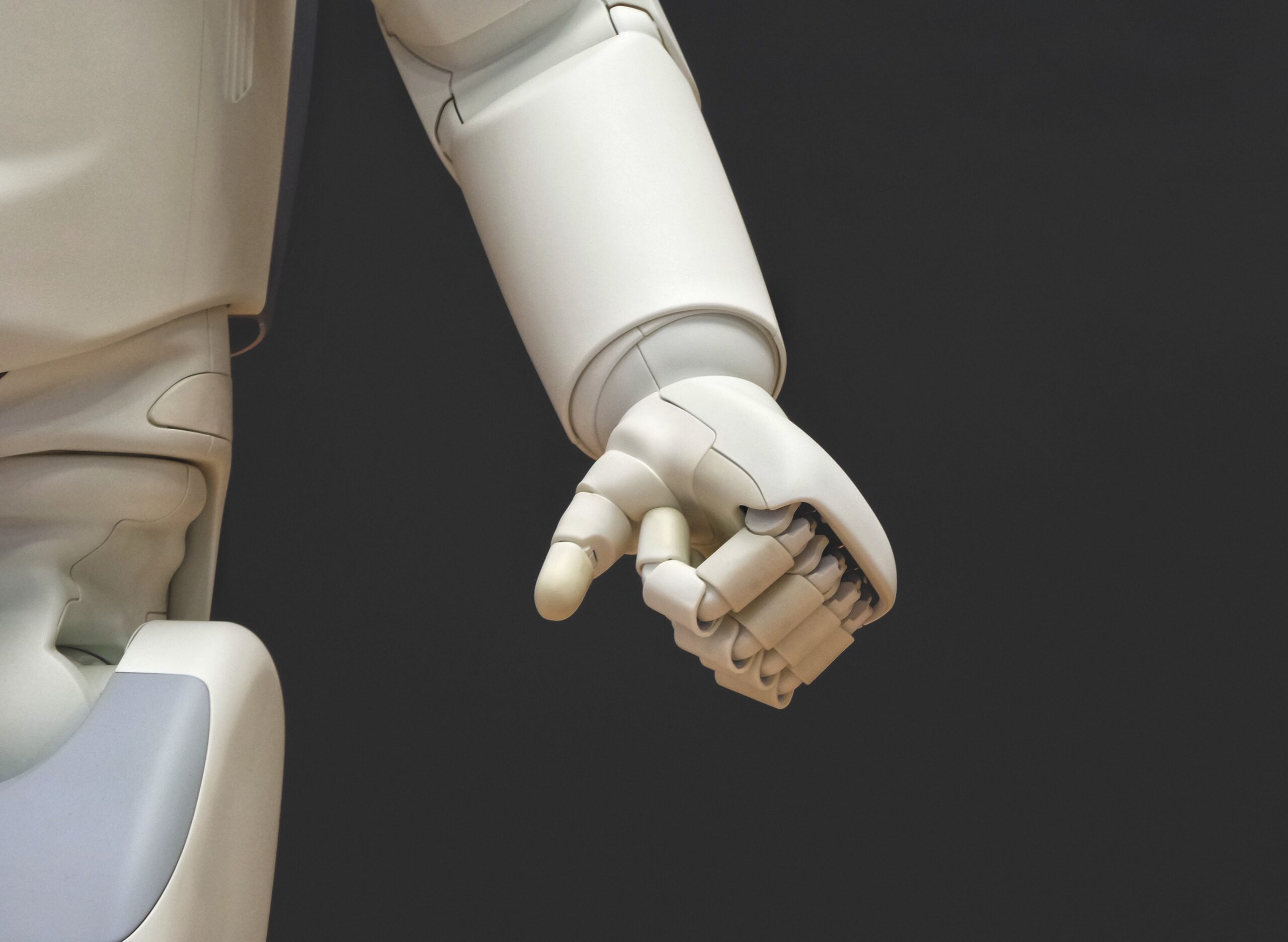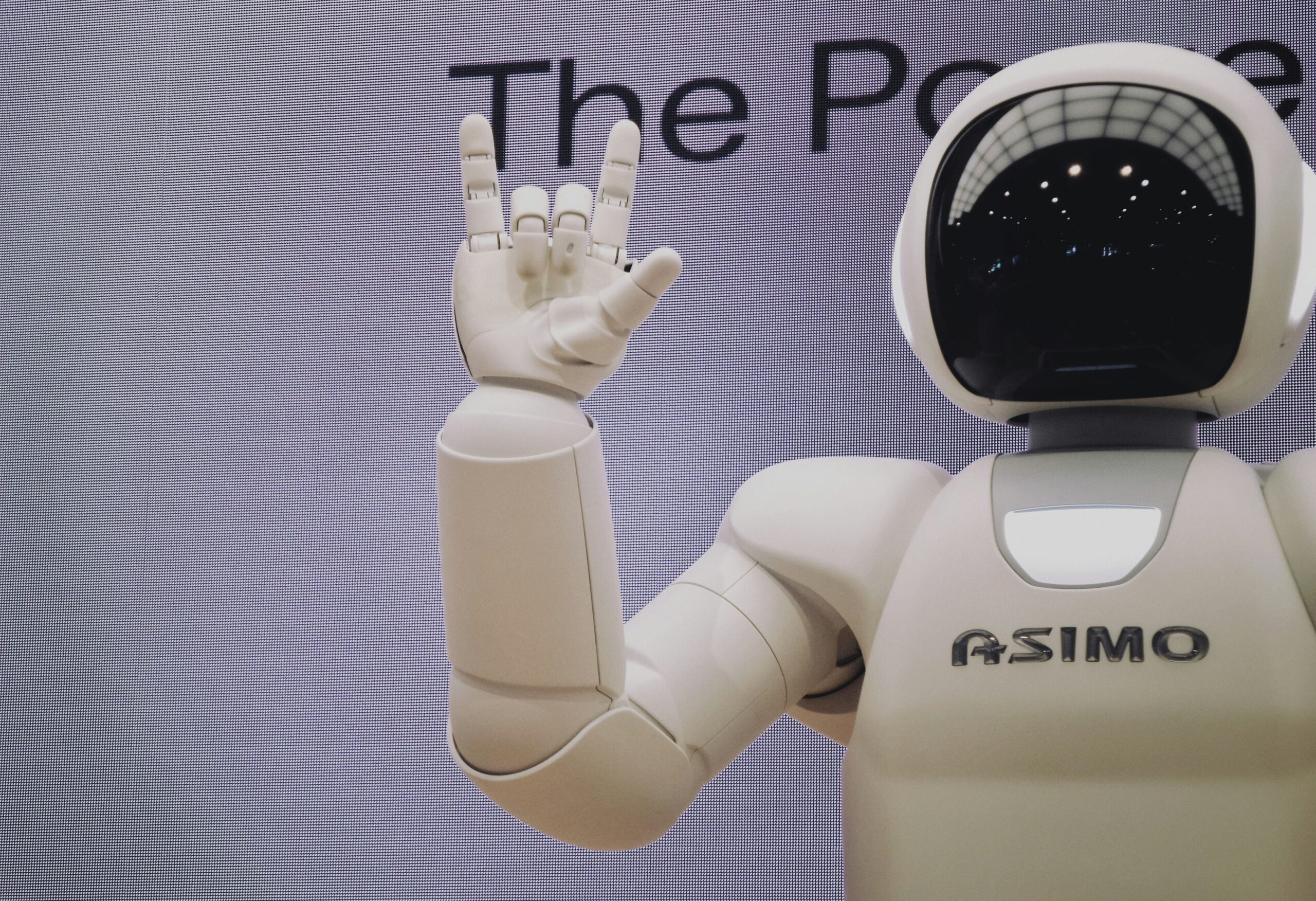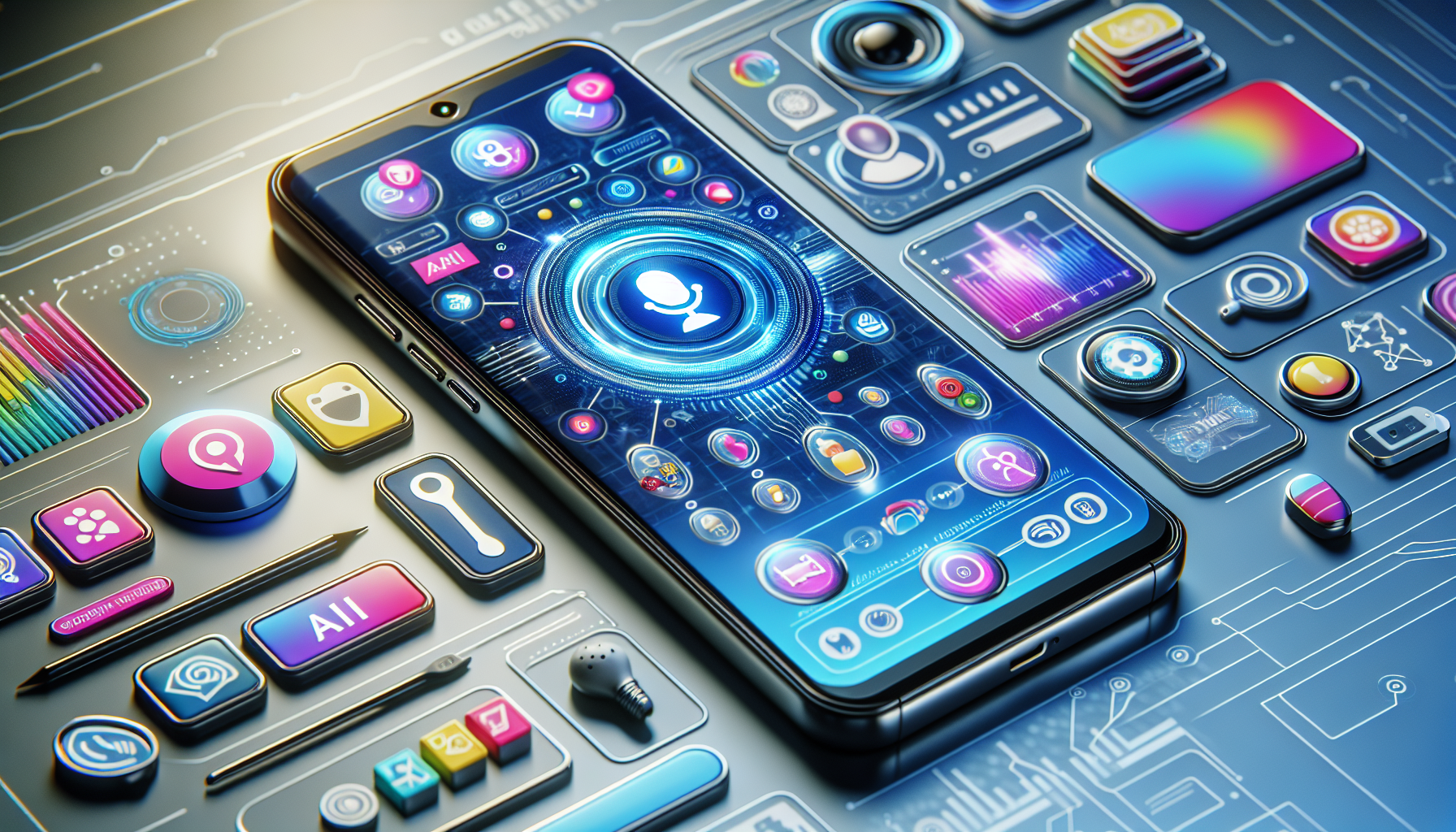In this article, you will discover a beginner’s guide to incorporating artificial intelligence (AI) into your daily life. From smart personal assistants to predictive algorithms, AI is revolutionizing various aspects of our lives. We will explore how AI can enhance productivity, streamline everyday tasks, and even improve our personal well-being. Get ready to embark on an exciting journey into the world of AI and discover how it can become a valuable addition to your daily routines.

Understanding AI
Definition of AI
Artificial Intelligence (AI) refers to the simulation of human intelligence in machines that are programmed to think and learn like humans. These intelligent machines can analyze data, recognize patterns, make decisions, and solve problems, just as humans do. AI is a broad field that encompasses various subfields such as machine learning, natural language processing, computer vision, and robotics.
How AI works
AI systems work by processing vast amounts of data and using algorithms to identify patterns, extract insights, and make predictions or recommendations. Machine learning, a subset of AI, involves training algorithms on large datasets to enable them to learn and improve their performance over time. AI systems can be trained using supervised or unsupervised learning techniques, depending on the availability of labeled or unlabeled data.
Types of AI
There are three types of AI: narrow AI, general AI, and superintelligent AI. Narrow AI, also known as weak AI, is designed to perform specific tasks and is the most common form of AI today. It includes applications such as virtual assistants, image recognition systems, and recommendation algorithms. General AI, on the other hand, refers to machines that possess human-like intelligence and can perform any intellectual task that a human can do. Superintelligent AI refers to AI systems that surpass human intelligence and are capable of outperforming humans in virtually every domain.
AI Applications in Daily Life
AI in smartphones
AI has become an integral part of smartphones, enhancing various features and functionalities. From intelligent virtual assistants like Siri and Google Assistant to camera systems that optimize photos using AI algorithms, smartphones are able to understand user preferences, predict user behavior, and provide personalized recommendations. AI also enables voice recognition, facial recognition, and language translation capabilities, making smartphones more intuitive and user-friendly.
AI in home assistants
Smart home assistants such as Amazon Echo with Alexa and Google Home with Google Assistant use AI to provide voice-activated assistance for various tasks. These AI-powered devices can answer questions, provide weather updates, play music, set reminders, control smart home devices, and even order products online. With advancements in natural language processing, these home assistants can understand complex commands and engage in meaningful conversations with users, making them valuable companions in daily life.
AI in healthcare
AI technologies are revolutionizing the healthcare industry by improving diagnosis, treatment, and patient care. AI algorithms can analyze medical records, images, and genetic data to identify diseases and recommend personalized treatment plans. AI-powered chatbots and virtual nurses offer round-the-clock assistance to patients, answering their healthcare queries and providing support. Additionally, wearable devices equipped with AI can monitor vital signs, detect abnormalities, and alert healthcare professionals in case of emergencies.
AI in transportation
The transportation sector is leveraging AI to enhance safety, efficiency, and convenience. AI algorithms are used in autonomous vehicles to analyze real-time data from sensors and cameras to navigate roads, avoid collisions, and optimize routes. AI-powered traffic management systems can monitor traffic patterns, predict congestion, and optimize traffic flow, reducing travel time and improving overall transportation efficiency. Additionally, ride-sharing platforms use AI to match drivers and passengers, enabling seamless and efficient transportation services.
AI in entertainment
AI has transformed the entertainment industry, enhancing user experiences and offering personalized content recommendations. Streaming platforms like Netflix and Spotify use AI algorithms to analyze user preferences and behavior to recommend movies, TV shows, and music. AI-powered virtual reality (VR) and augmented reality (AR) technologies provide immersive experiences in gaming, movies, and live events. AI can also generate realistic visuals and special effects, making movies and animations more visually captivating.
AI in finance
The finance industry is leveraging AI to automate tasks, improve decision-making, and enhance customer experiences. AI-powered chatbots and virtual assistants can answer customer queries, provide financial advice, and assist with transactions. AI algorithms analyze vast amounts of financial data to detect fraud, assess risks, and make investment recommendations. Additionally, AI-driven robo-advisors offer automated investment portfolios tailored to individual preferences and goals, making investing more accessible and efficient.
AI in retail
Retailers are utilizing AI to enhance the shopping experience, optimize inventory management, and personalize marketing strategies. AI-powered chatbots and virtual assistants can provide personalized product recommendations, answer customer queries, and assist with purchases. AI algorithms analyze customer data to identify trends and predict buying behavior, enabling retailers to offer targeted promotions and discounts. AI-powered robots and self-checkout systems are also being used to streamline operations and improve overall efficiency in retail stores.
AI in education
AI technologies are transforming the education sector by enabling personalized learning experiences and improving educational outcomes. AI-powered adaptive learning platforms can analyze student performance data to create customized learning pathways and provide targeted instruction. AI chatbots and virtual tutors can answer student queries, provide instant feedback, and offer personalized support. AI can also automate administrative tasks such as grading and scheduling, freeing up time for educators to focus on instruction.
AI in agriculture
AI is revolutionizing the agriculture industry by optimizing crop yields, reducing resource consumption, and improving sustainability. AI-powered drones and sensors can monitor crop health, detect diseases and pests, and optimize irrigation and fertilization schedules. AI algorithms analyze weather patterns, soil data, and historical yield data to make accurate predictions and recommendations for planting and harvesting. Additionally, AI-powered robots can automate labor-intensive tasks such as planting, weeding, and harvesting, reducing the reliance on manual labor.
AI in communication
AI technologies are enhancing communication by enabling real-time language translation, speech recognition, and natural language processing. AI-powered language translation services can facilitate communication between individuals speaking different languages, breaking down language barriers and promoting collaboration. Speech recognition technology allows voice commands and dictation, making communication more efficient and hands-free. Natural language processing capabilities enable AI systems to understand and respond to human language, enhancing communication with virtual assistants and chatbots.
Benefits of Incorporating AI
Improved efficiency and productivity
Incorporating AI in daily life can significantly improve efficiency and productivity by automating repetitive tasks and streamlining processes. AI-powered systems and devices can perform tasks faster and with greater accuracy than humans, reducing the time and effort required to complete various activities.
Enhanced personalization
AI technologies enable personalized experiences by analyzing user preferences, behavior, and data. From personalized product recommendations to customized learning pathways, AI can tailor its outputs to individual needs and preferences, enhancing user satisfaction and engagement.
Time-saving
AI can save valuable time by automating tasks that would otherwise require manual effort and attention. From voice-activated virtual assistants that can perform tasks on command to autonomous vehicles that can navigate roads without human intervention, AI frees up time for users to focus on more important activities.
Better decision-making
AI systems can analyze vast amounts of data and extract meaningful insights to support decision-making processes. From healthcare professionals diagnosing diseases to financial advisors making investment recommendations, AI can provide accurate and data-driven insights to enhance decision-making outcomes.
Automated tasks
By automating tasks, AI can simplify and streamline daily life activities. From automated home assistants that can control smart home devices to chatbots that can answer customer queries, AI saves time and effort by taking care of routine and repetitive tasks.
Access to information
AI-powered devices and systems provide instant access to vast amounts of information. From searching the internet for information to asking virtual assistants for answers, AI enables users to retrieve information quickly and conveniently, enhancing knowledge and information access.
Improved safety and security
AI technologies can enhance safety and security by analyzing data in real-time and detecting potential threats or risks. From AI-powered surveillance systems monitoring public areas to fraud detection algorithms analyzing financial transactions, AI contributes to creating safer environments.
Enhanced entertainment experiences
AI in entertainment offers personalized recommendations, immersive experiences, and realistic visuals, enhancing entertainment experiences. From personalized movie recommendations to virtual reality gaming experiences, AI technologies make entertainment more engaging and enjoyable.
Assistance for people with disabilities
AI technologies can assist people with disabilities by providing support and accessibility features. From speech recognition systems that enable hands-free communication to AI-powered prosthetics that restore mobility, AI contributes to improving the quality of life for individuals with disabilities.
Innovation and future advancements
Incorporating AI in daily life promotes innovation and drives future advancements. By embracing AI technologies and exploring their capabilities, individuals and society as a whole contribute to the development and refinement of AI, paving the way for future advancements and discoveries.
Getting Started with AI in Daily Life
Identify areas where AI can be useful
Start by identifying areas in your daily life where AI can be useful. Consider tasks or activities that could be automated or optimized through the use of AI technologies, such as home automation, personal assistance, or learning applications.
Research available AI technologies
Once you have identified potential areas, research the available AI technologies that can fulfill your needs. Explore different AI-powered devices, applications, and systems that align with your requirements and preferences.
Consider privacy and data security
When incorporating AI in daily life, it is essential to consider privacy and data security implications. Review the privacy policies and data handling practices of AI technologies to ensure your personal information is protected.
Evaluate cost and affordability
Consider the cost and affordability of AI technologies before making a purchase. Compare different options, taking into account the features, functionality, and long-term value offered by each option.
Choose user-friendly AI devices or apps
Opt for user-friendly AI devices or applications that are intuitive and easy to use. Consider the user interface, available support, and overall usability to ensure a smooth and enjoyable AI experience.
Start with simple AI applications
If you are new to AI, start with simple applications that are easy to understand and implement. Gradually explore more advanced AI technologies as you become familiar with the basics.
Learn from tutorials and online resources
Take advantage of tutorials, online resources, and forums to learn more about AI technologies and their applications. These resources can provide valuable insights and guidance to enhance your AI experience.
Interact with AI systems to gain familiarity
Interact with AI systems regularly to gain familiarity and confidence. Ask questions, make requests, and explore the capabilities and limitations of AI technologies to maximize their potential.
Experiment and explore AI capabilities
Experiment and explore the capabilities of AI technologies to uncover new possibilities and functionalities. Try out different features, customize settings, and adapt AI technologies to suit your specific needs and preferences.
Stay updated with the latest advancements
Keep abreast of the latest advancements and developments in AI to stay informed and take advantage of new features and functionalities. Follow reputable sources, join communities or forums, and engage in discussions to stay updated with the latest AI trends.

Challenges and Concerns
Job displacement
One of the concerns with incorporating AI in daily life is the potential displacement of jobs. As AI technology advances, certain tasks that were previously performed by humans may become automated, leading to job redundancies and economic changes.
Privacy and data security risks
The use of AI technologies may involve the collection, storage, and processing of personal data. This raises concerns about privacy and data security, as there is a risk of data breaches or unauthorized access to sensitive information.
Bias and ethical considerations
AI algorithms and systems are trained on large datasets, which may contain biases and perpetuate existing inequalities. It is essential to consider ethical implications and address potential biases to ensure AI is fair, inclusive, and respects human rights.
Reliability and trust issues
Relying on AI systems for critical tasks raises concerns about their reliability and trustworthiness. There is a need to ensure that AI technologies are accurate, transparent, and accountable to gain users’ trust and confidence.
Dependency on AI
Overreliance on AI technologies may lead to dependency and reduced human capability in performing certain tasks. It is important to strike a balance between leveraging AI for efficiency and maintaining human skills and abilities.
Lack of human touch
AI technologies may lack the human touch and empathy that humans provide in various interactions. The absence of human emotions and understanding can limit the depth of certain experiences and interactions.
Potential for misuse and exploitation
The power and capabilities of AI technologies can be misused or exploited for malicious purposes. AI can be used for generating deepfakes, spreading misinformation, or conducting cyberattacks, raising concerns about misuse and responsible use.
Regulatory and legal challenges
AI technologies pose regulatory and legal challenges, as they often operate across borders and raise questions about liability and accountability. Governments and organizations need to establish regulations and frameworks to ensure responsible and ethical AI use.
Education and training gaps
There is a need for education and training programs to equip individuals with the necessary skills and knowledge to understand and interact with AI technologies. Bridging the education and training gaps is crucial for the responsible and effective use of AI in daily life.
Socio-economic impacts
The integration of AI in daily life can have socio-economic impacts, affecting various sectors and individuals differently. It is essential to consider the potential impact on employment, accessibility, and social inequalities to ensure the benefits of AI are equitably distributed.
Tips for Using AI Safely and Responsibly
Read and understand privacy policies
Before using an AI technology, carefully read and understand its privacy policy. Pay attention to how your data will be collected, used, and protected, and ensure you are comfortable with the terms outlined.
Control data sharing settings
Review and control the data sharing settings of AI devices and applications. Customize privacy settings to limit data collection and sharing, and be mindful of the permissions granted to ensure your personal information is handled responsibly.
Regularly update software and security features
Keep AI software and security features up to date to benefit from the latest performance improvements and security patches. Regularly installing updates ensures that potential vulnerabilities are addressed and the AI technology is optimized.
Use strong and unique passwords
When setting up an account or accessing an AI technology, use strong and unique passwords to protect your personal information. Avoid using easily guessable passwords and consider using password managers for added security.
Be cautious of phishing and scams
Be cautious when interacting with AI technologies and be aware of potential phishing attempts or scams. Avoid clicking on suspicious links or sharing personal information in response to unsolicited requests.
Verify information and fact-check
AI technologies can generate and disseminate information, but it is important to verify the accuracy and reliability of the information received. Fact-check and cross-reference information from multiple sources to ensure its credibility.
Report any concerns or issues with AI systems
If you encounter any concerns, issues, or malfunctions with AI systems, report them to the appropriate authorities or customer support channels. Reporting problems helps improve the technology and ensures user safety and satisfaction.
Limit AI usage when necessary
While AI can offer numerous benefits, it is important to acknowledge when to limit AI usage. Maintain a healthy balance between AI and human interactions, and avoid excessive reliance on AI for tasks that require human judgment or emotional intelligence.
Be mindful of AI biases
Be mindful of the potential biases inherent in AI systems. Recognize that AI algorithms may reflect the biases present in the data they are trained on and be critical of the outputs generated by AI technologies.
Advocate for responsible AI development
As a user of AI technologies, you have a role in advocating for responsible AI development and use. Stay informed, engage in discussions, and support initiatives and organizations that promote ethical, fair, and unbiased AI.

Future of AI in Daily Life
Integration of AI with IoT
The integration of AI with the Internet of Things (IoT) will further enhance the capabilities of AI technologies in daily life. By connecting AI-powered devices and sensors, IoT can collect and process vast amounts of data, enabling intelligent automation and personalized experiences.
Smart homes and cities
AI will play a significant role in creating smart homes and cities. AI-powered systems will control and optimize energy consumption, monitor security, and provide personalized services, enhancing comfort, efficiency, and sustainability.
Virtual assistants evolving into companions
Virtual assistants will continue to evolve into more intelligent and human-like companions. Advancements in natural language processing, emotional intelligence, and empathy-driven technologies will enable virtual assistants to provide personalized support and companionship.
Advancements in healthcare with AI
AI will continue to have a major impact on healthcare, with advancements in diagnosis, treatment, and personalized medicine. AI algorithms will be able to analyze complex medical data, identify patterns, and develop targeted treatment plans, leading to improved healthcare outcomes.
Increased automation in various sectors
Automation will continue to increase in various sectors, thanks to AI technologies. From autonomous vehicles to robotic automation in manufacturing and logistics, AI will streamline operations, enhance productivity, and reshape industries.
Augmented and virtual reality experiences
AI technologies will further enhance augmented and virtual reality experiences. AI algorithms will create more realistic visuals, dynamic virtual environments, and personalized immersive experiences, transforming gaming, entertainment, and training applications.
AI in education transforming learning
AI will revolutionize education by transforming traditional learning methods into personalized and adaptive experiences. AI-powered learning platforms will individualize instruction, provide targeted feedback, and personalize educational content, optimizing learning outcomes.
Ethical considerations in AI development
The future of AI will involve enhanced ethical considerations in its development and use. Researchers, policymakers, and industry leaders will focus on addressing biases, ensuring fairness, and upholding ethical standards to create responsible and beneficial AI technologies.
Collaboration between humans and AI
The future will involve greater collaboration between humans and AI technologies. AI will augment human abilities and complement human intelligence, enabling individuals to focus on tasks that require creativity, critical thinking, and emotional intelligence.
Emotional AI and empathy-driven technologies
Advancements in emotional AI and empathy-driven technologies will enable AI systems to better understand and respond to human emotions. AI technologies will be able to provide emotional support, empathetic interactions, and personalized experiences, enhancing the emotional well-being of individuals.
Conclusion
Incorporating AI in daily life offers numerous benefits and opportunities. From improved efficiency and productivity to personalized experiences and enhanced decision-making, AI technologies have the potential to transform the way we live, work, and interact. However, it is essential to be aware of the challenges and concerns associated with AI, such as job displacement, privacy risks, biases, and dependence. By using AI safely and responsibly, staying informed, and advocating for ethical AI development, individuals can harness the power of AI and contribute to its responsible and beneficial integration into daily life.







Leave a Reply